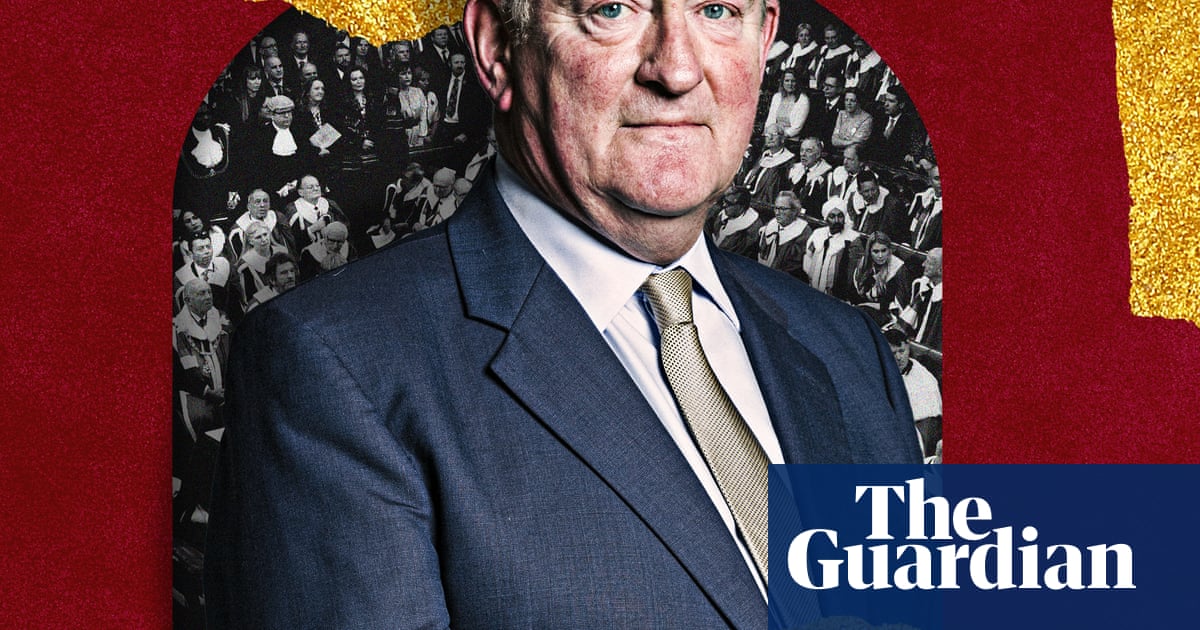TheHouse of Lordswatchdog has launched an investigation into a Conservative hereditary peer who admitted he “erroneously” made claims last year for travel expenses he did not incur. He is the fifth peer to face an inquiry after Guardian reporting into the upper house.
The Earl of Shrewsbury is being examined for a potential breach of rules after revelations he received reimbursement for mileage for four journeys between his home in Derbyshire and Stafford station, which he cannot have made as he was either in London or Liverpool.
Leaked emails and documents obtained under freedom of information legislation also revealed Shrewsbury had usedhis taxpayer-funded first-class ticket for part of a journey to Liverpool from Londonto attend a board meeting of a commercial company he advised.
The peer, whose full name is Charles Henry John Benedict Crofton Chetwynd Chetwynd-Talbot, wrote “in jest” in an email to his fellow directors that the “government pays” for his travel to the meeting.
Shrewsbury said earlier this month that he had offered to reimburse the taxpayer for the expenses he had “erroneously” claimed and any sums that could be due from part of the first-class ticket he had used to attend the board meeting.
The Lords commissioners for standards are investigating allegations against three other peers after revelations in the Guardian’sLords debate series:
Ian Duncan, a Conservative peer who helped to secure a meeting with a government minister for a Canadian nuclear technology company he was advising.
Richard Dannatt, a former head of the army who offered to secure meetings with ministers for undercover Guardian reporters posing as commercial clients wanting to lobby the government.
David Evans of Watford, a Labour peer who referred himself to the watchdog after facing cash-for-access questions following undercover filming with Lord Evans.
Two weeks agoIain McNicol, a trade envoy and a former general secretary of the Labour party, was found to have broken the code of conduct by writing to the Treasury to promote a cryptocurrency firm that was paying him.
There is also an outstanding inquiry into the Conservative peer Peter Gummer, Lord Chadlington,who is being investigated for the third time by the watchdog.
The commissioners are yet to finalise any report into Michelle Mone and her role in procuring contracts for PPE Medpro, pending an ongoing investigation by the National Crime Agency.
Shrewsbury has previously been the subject of two inquiries by the watchdog, including one intohis “lucrative relationship” with a healthcare firmthat paid him £57,000 over two years to lobby ministers and officials. He was suspended from the Lords for nine monthsfor this – the most severe sanction imposed on a peer found to have broken the rules by being paid to lobby. He returned in September 2023 and had theConservative whip restored in November 2023.
The commercial meeting and expenses claims now being scrutinised occurred in January 2024, less than six months after Shrewsbury’s suspension ended.
Shrewsbury has previously said: “Whether I was right or wrong, I have asked the finance department to take the amounts which they might believe to be due from both matters from my attendance allowance for April 2025.”
He added that he believed he had “acted in good faith”.
